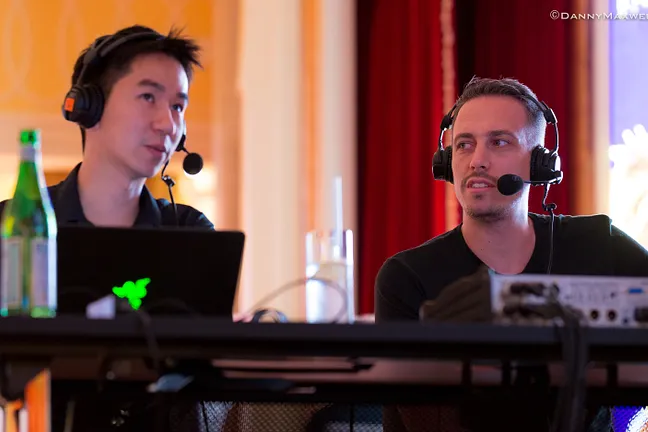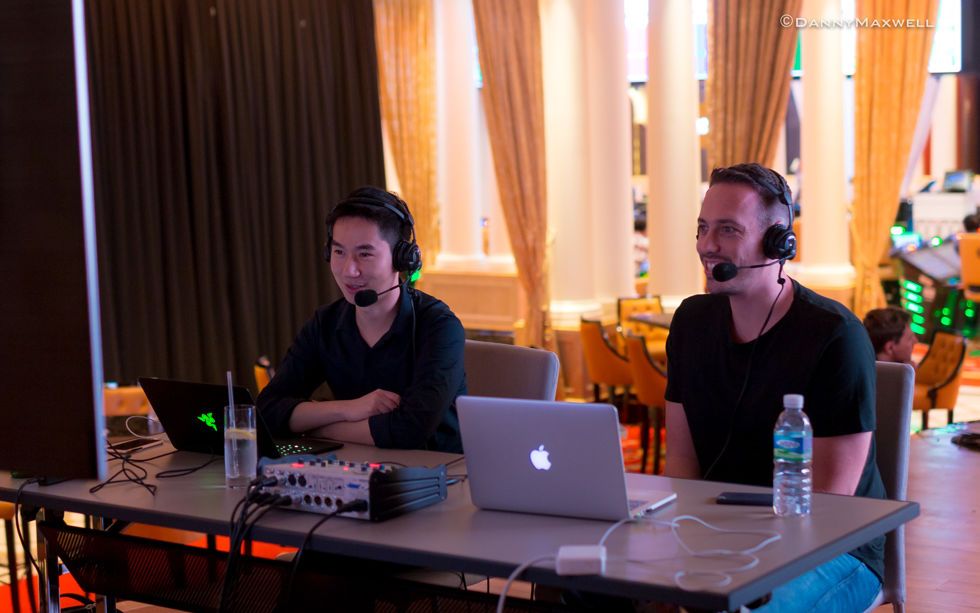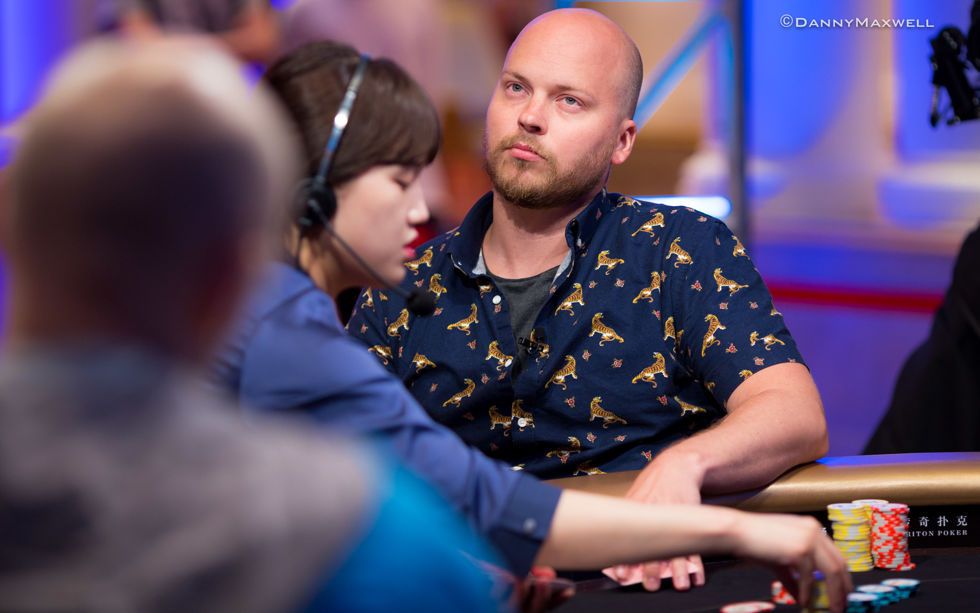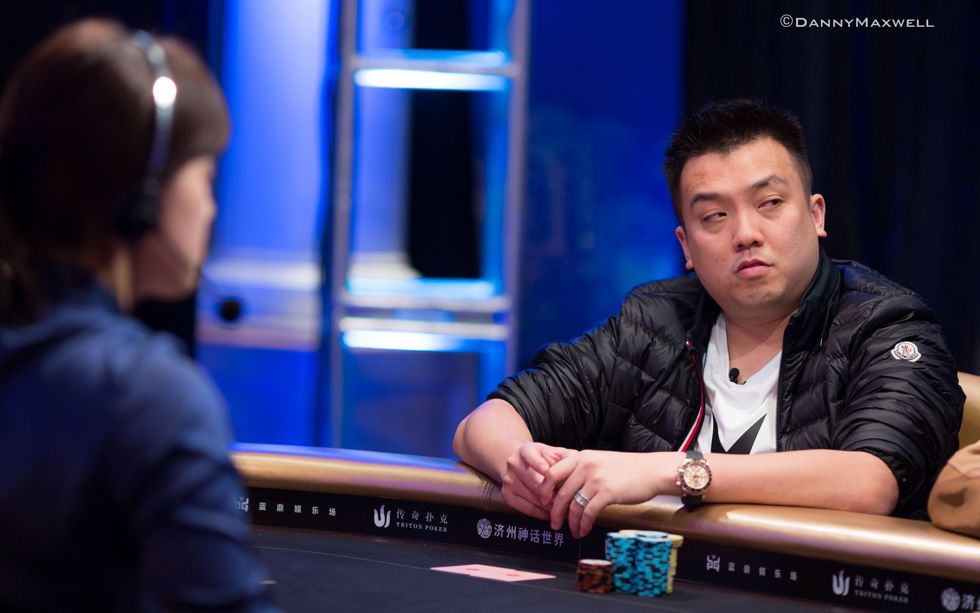From Stream to Booth; Lex Veldhuis Discusses Commentary and Short Deck Strategies


Over the course of the last couple years, Lex Veldhuis has been building his presence as one of the biggest and best streamers in the poker world. He's now starting to expand his presence even further by delving into the world of commentary, and he's taking a big step by hopping into the booth here in Jeju, commentating alongside Randy Lew. While this isn't Lew's first experience with Triton and short deck, it is a crash course of sorts for Veldhuis, who is picking up the game quickly.
"I kind of feel like it's a good balance if you don't overdo it," Veldhuis said about his preparation for the event. "But I think that coming in unprepared is kind of unprofessional. I think that a lot of the audience is learning. I know Randy has more experience so I thought about positioning myself in a way where I want to know the rules. I want to know enough where it triggers some kind of interesting strategy because then you're going to come up with questions right. And if I voice those questions and ask them out loud, and also to Randy on the stream, then you get like an interesting discussion going and hopefully, I will ask some of the questions that the chat is having themselves. So I think that that will create the most interesting dynamic in learning a new game."
Veldhuis hadn't played the game before himself, so in preparation, he watched streams from the previous event in Montenegro and gave himself a refresher course on the rules of the game. But the game is intriguing to Veldhuis who said it reminds him of pot-limit Omaha, a game that he loves. And while Veldhuis said that broadcasting and commentating gives him the itch to play, this line of work is more in line with his goals at the moment.
"I mean it even happens if I'm just watching it on Twitch or from watching YouTube video," Veldhuis explained about his itch to play. "There's always an itch. I know to feel the way it feels to play those games which is always awesome. I love the tension of high stakes poker and I just like competing a lot. So there's always and itch to play. "

"People ask me a lot 'Why don't you play the event if you're there? Why don't you play?' I mean obviously, I'm not going to play million dollar buy-in. It's not like, you know, oh let's do this on a random Tuesday or something. What's really important for me, when I think about my career as something that I'm building, is does it support what I'm doing right now. And at this moment broadcasting supports what's in line with my goals. It supports what I want to do right now and it supports what I'm building. So it's a very easy choice for me to choose broadcasting. Because broadcasting ties in with Twitch, it ties in with my platform and everything else. But the itch is always there."
And for Veldhuis the two jobs do go hand in hand. While the commentary work is quite different from streaming his own content, they both build on each other in complementary ways.
"I think that the biggest thing is just getting used to talking," he explained. "I've really noticed that I've gotten better at talking, picking my words, like kind of going through sentences and stuff. And of course a lot of media stuff that I've done over the past years have helped with that as well. But I mean just to illustrate, a funny comment somebody made in my Twitch channel was, 'Do you realize that English is your first language now?' I talk more English than I do Dutch because it's just nonstop talking. So that really helps. You also kind of learn what people think is interesting. You get a better gauge of humor, points of interest, that sort of thing so I think it prepares you very really well."
The differences lie in the analysis portion for Veldhuis. While streaming he is more focused on analyzing his own play and creating his own content when commentating, he's in the service of someone else's content.
"I feel like I'm developing a different side of something that I'm already interested in and already building," he said. "t's a potential future for me."
And for Veldhuis, the commentating also works as a learning tool as well by forcing him into a position where he has to analyze and go over every hand played.
"Now I'm aware of my active duty to kind of find tendencies you know," he said. "So I see things that people do a lot, really spotting tendencies. So everybody really seems to just always call in early position when nine-eight suited. That's just the way people play their hands. Cool so that should become your new standard. Right? A lot of people that have played this game a lot do a certain things and that's a really good starting point."
Along with that, Veldhuis is picking up on what players understand the game the best. After the first day of play, he noted tendencies of Gabe Patgorski, Kenneth Kee, and Chow Hing Yuang.

"I picked up that the Patgorski played this a lot," Veldhuis said. "He plays high stakes cash games, high stakes tournament short deck. So he's played this lot. So I'm going to go with what he does as a really good example of somebody that kinda plays above the rim that does really good stuff. And obviously he's very spewy sometimes and very aggressive but it could tie in to a very good style in short deck.
"I really like the way Kee's playing," he continued. "Because he played some interesting hands today but he seems to be very good at staying out of pots. I also thought Yuang was playing really well. He seems to be very good at hand reading. He seemed a little bit over it at the end of the day. But before that he was showing some really, really good strategy. He was very sharp. He really didn't fall into a lot of traps. I think he understands the preflop game really well."

When it comes to strategy and things Veldhuis saw and liked, it was all about preflop play. He explained that for him, there was a lot of really ill-advised limping going on, and not enough three-betting.
"I think the limping is a huge part. There's one thing that I feel like people haven't really... One thing that was highlighted to me was something that I'm missing. I feel like there's kind of a big hole and people aren't really used to what they should reraise and three-bet with. They know what they should go all in with approximately, and what they should call was kind of, but it really seems there that all the hands you could think of three-bet bluffing with people are picking to flat call with. So there is a lot of limping, a lot of calling, not much raising and three betting yet.
"You know it's a tournament it's not cash game. So if you play a really good PLO tournament game you see people limp a lot. You see people going to the flops and it turns into a flop game a lot. So that's kind of the thing I do take away from it is that you just complete a lot because you have to pay one ante. You get like seven to one right off the bat. First player gets seven to one on his hand. You have ten-eight, ten-eight can do a lot of stuff you know. So I think it's very table dependent."
"I do think that we see a lot of to lose limps to be honest," Veldhuis continued. "Queen-six, king-six, jack-six, jack-seven. I don't think you're really supposed to seeing those hands. I think it's kind of like the illusion of pot odds. 'I get a good odds, so I call,' but it never works out because your hand is shit. You know? So what are you really calling for?"
The game of short deck hold'em is still not globally renowned and is still growing, just recently moving onto the scene of streamed poker events. According to Veldhuis, the best way to grow the game is by sharing it with friends and playing smaller buy-ins together to get a feel for the game and to spread the good word.
"I think the best thing to do is to tell your friends about it," he said. "If you play drinking games or you know, if you go to a bar... Me and my friends play games the bar all the time. Actually, you know, my friends in real life, they play like 20 euro buy-in games every week at our favorite pub and they asked me one time so I kind of explained Omaha to them and we would play like 20 dollar Omaha sit and go's. That's probably the best way to do it. You look up the rules, you start playing with your friends and it's really good to learn games that way. I don't think it's offered anywhere online at this moment so that's kind of what you are going to have to stick to. Or you know buy-in for twelve and a half thousand dollars in a warm-up event."
Veldhuis said it's only a matter of time until the game is seen on a bigger scale, predicting that by next year a World Series of Poker short deck event could be within reach.
"I think that it's picked up really well," Veldhuis said. "I think people like watching it. People Like playing it. I'm getting actually, especially after Montenegro Triton event, people are asking me a lot on Twitch, 'Are you going to play short deck?' I can't. I think it's really up to people there. You know there's such a competitive atmosphere out there. I think that people are going to try and jump on it to offer it to be the first one to offer it so people can play somewhere. I mean I think it's going to be really soon when we see somewhere live and somewhere else."

